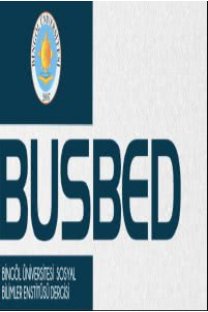MUHASEBE HATA VE HİLELERİ ÜZERİNDE İÇ KONTROLÜN ROLÜ
Teknolojik ve endüstriyel gelişmeler ticari işlemlerin çeşitliliğini arttırarak işletmeleri hata ve hileye karşı korumasız hale getirmeye başlamıştır. Hata ve hileler işletmelerin varlıklarını, verecekleri kararları hatta işletmenin devamlılığını bile negatif etkilemektedir. İşletmelerdeki hata ve hilelerin önlenmesi, var ise tespit edilmesi için etkin bir iç kontrol sistemi gerekmektedir. TTK, (Türk ticaret Kanunu) işletme sahiplerine iç kontrol uygulamaları ile ilgili açık bir düzenleme getirmemiştir. Ancak doğrudan olmasa da dolaylı olarak, iç kontrol ile ilgili bazı atıfların varlığından söz edilebilir. TTK uygulayıcılara iç kontrol hakkında bilgi de vermektedir. Araştırmada iç kontrolün muhasebe hata ve hileleri üzerindeki etkisini anlamaya yönelik anket çalışması uygulanmıştır. Ankette, katılımcılara işletmenin temel fonksiyonları ile ilgili önermeler sunulmuştur. Gaziantep ilinde ticaret, üretim ve hizmet alanlarında faaliyet gösteren iç kontrol sistemine sahip 44 işletmeye anket uygulanmıştır. Veriler tanımlayıcı istatistik eşliğinde yorumlanmıştır. Sonuç olarak, işletmelerdeki olası hata ve hileleri önlemede iç kontrol sisteminin önemli bir etkisi olduğuna ulaşılmıştır.
THE ROLE OF INTERNAL CONTROL OVER ACCOUNTING ERRORS AND FRAUDS
Technological and industrial developments have increased the diversity of commercial transactions and have begun to make businesses vulnerable to error and fraud. Errors and tricks negatively affect businesses' assets, their decisions, and even the continuity of the business. An effective internal control system is required to detect and prevent mistakes and frauds in businesses. TTK has not introduced a clear regulation on internal control applications to business owners. Indirectly, though not directly, the presence of some reference to internal control can be mentioned. TTK (Turkish Commercial Code) also gives information about internal control by the applicator. In the study, a questionnaire study was conducted to determine the effect of the internal control over accounting errors and tricks. In the questionnaire, proposals related to the basic functions of the participant were presented. A questionnaire was applied to 44 enterprises operating in the fields of trade, production and services in Gaziantep with an internal control system. The data are interpreted in descriptive statistical context. As a result, possible errors and tricks in the business have been found to be a significant influence of the internal control system in the prevention.
___
AÇIK, Serap (2012), Muhasebede Hata ve Hilelerin Vergi Hukuku Açısından İncelenmesi, Atatürk Üniversitesi Sosyal Bilimler Enstitüsü Dergisi, C. 16, Sy. 3, ss. 351-366.APPIAH, Emmanuel (2015), Exploring the Perceptions of Northern Virginia Accountants on In- ternal Control Weaknesses Resulting in Accounting Fraud (Doctoral Dissertation), Retrieved from ProQuest Dissertation and Theses Databases. (Accession No. Number: 3745274).
ATMACA, Metin (2012), Muhasebe Skandallarının Önlenmesinde İç Kontrol Sisteminin Etkin- leştirilmesi, Afyon Kocatepe Üniversitesi İİBF Dergisi, C. 13, Sy. 1, ss. 191-205.
BAYRAKTAROĞLU, Hakan (2016), İşletmelerde Muhasebe Hata ve Hilelerinin Önlenmesinde Etkin İç Denetimin Rolü ve Önemi Üzerine Bir Alan Araştırması, Muhasebe Bilim Dünyası Dergisi, C. 18, Sy. 1, ss. 185-214.
BOZKURT, Nejat (2010), Muhasebe Denetimi, Alfa Yayıncılık, İstanbul.
DABBAĞOĞLU, Kadir (2009), İç Kontrol Sistemi, Journal of Qafqaz University, Sy.26, ss. 109-115.
DALĞAR, Hüseyin (2012), İşletmelerin Muhasebe Departmanlarında Hata ve Hileleri Önlemeye Yönelik İç Kontrol Sisteminin Oluşturulması: Bir Vaka Çalışması, Muhasebe Bilim Dünyası Dergisi (MÖDAV), C.14,Sy. 3, ss. 129-155.
DUMANOĞLU, Sezai (2005), Hata ve Hile Ayrımı: Hile Denetimi, Marmara Üniversitesi İİBF Dergisi, C. 20, Sy. 1, ss. 347-358.
EROL, Mikail (2008), İşletmelerde Yaşanan Yolsuzluklara (Hata Ve Hileler) Karşı Denetimden Beklentiler, Süleyman Demirel Üniversitesi İktisadi ve İdari Bilimler Fakültesi, C. 13, Sy. 1, ss. 229-237.
GÜCENME, Ümit (2004), Muhasebe Denetimi, Aktüel Yayınları, İstanbul.
GÜREDİN, Ersin (2000), Denetim, Beta Yayıncılık, İstanbul.
HALBOUNI, Sawsan Saadi, OBEID, Nada and GARBOU, Abeer (2016), Corporate Governance and Information technology in fraud prevention and Detection: Evidence from the UAE, Managerial Auditing Journal, Vol. 31, No. 6/7, pp. 589-628.
HALL, Xylia M. (2017), Fraud Detection and the Internal Auditor, Degree of Master, Utica College, Newyork.
HATUNOĞLU, Zeynep, KOCA, Nurettin ve KILLI, Mustafa (2012), İç Kontrolün Muhasebe Sistemindeki Hata ve Hilelerin Önlenmesindeki Rolü Üzerine Bir Alan Çalışması, Mustafa Kemal Üniversitesi Sosyal Bilimler Enstitüsü Dergisi, C. 9, Sy. 20, ss. 169-189.
KARAKAYA, Gencay (2016), Çalışan Hileleri ve İç Kontrol İlişkisi, Vergi Sorunları Dergisi, Sy. 330, ss. 159-171.
KOÇAK, Süleyman Yaman ve KAVAKOĞLU, Tamer (2010), İl Özel İdarelerinde İç Denetim Sis- teminin Değerlendirilmesine İlişkin Bir Araştırma, Sayıştay Dergisi, Sy. 77, ss. 119-148.
OTHMAN, Rohana, ARIS, Nooraslinda Abdul, MARDZIYAH, Ainun, ZAINAN, Norhasliza and AMIN, Noralina Md (2015), Fraud Detection and Prevention Methods in the Malaysian Public Sector: Accountants and Internal Auditors Perceptions, 7th International Conference on Financial Criminology, Vol. 28, pp. 59-67.
ÖMÜRBEK, Vesile ve ALTAY, Sevil Özge (2011), Turizm İşletmelerinde İç Kontrol Sisteminin Etkinliğinin İncelenmesi ve Manavgat Bölgesindeki Beş Yıldızlı Otellerde Bir Araştırma, Sülymen Demirel Üniversitesi İİBF Dergisi, C. 16, Sy. 1, ss. 379-402.
SELİMOĞLU, Seval Kardeş ve UZAY, Şaban (Ed.). (2011), Muhasebe Denetimi, Gazi Kitabevi, Ankara.
TUAN, Kadir ve MEMİŞ, Mehmet Ünsal (2007), İç Denetimin Yönetim Fonksiyonlarının Yerine Getirilmesindeki Rolü, Muhasebe ve Finansman Dergisi, Sy. 35, ss. 1-14.
- ISSN: 1309-6672
- Yayın Aralığı: Yılda 2 Sayı
- Başlangıç: 2011
- Yayıncı: Yusuf Aydoğdu
Sayıdaki Diğer Makaleler
Yavuz TÜRKAN, Özgür DEĞİRMENCİ
MUHASEBE HATA VE HİLELERİ ÜZERİNDE İÇ KONTROLÜN ROLÜ
TEKNOLOJİK GELİŞMELERİN TURİST REHBERLİĞİ MESLEĞİNE ETKİLERİ ÜZERİNE BİR SWOT ANALİZİ
TOLGA FAHRİ ÇAKMAK, ŞEHNAZ DEMİRKOL
EV HANIMLARININ GİRİŞİMCİLİĞİ: GAZİANTEP İLİNDE NİTEL BİR ARAŞTIRMA
İMALAT İŞLETMELERİNDE ETKİNLİK ÖLÇÜMÜ: BIST 100 ÖRNEĞİ
LOJİSTİK FİRMALARINDA BÖLGESİNDE BİR ARAŞTIRMA
OTEL İŞLETMELERİNDE DENEYİMSEL PAZARLAMA
MİLLİ GÖRÜŞ PARTİLERİNİN PROGRAMLARININ DIŞ POLİTİKA ANALİZİ
